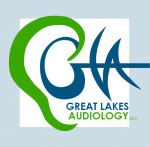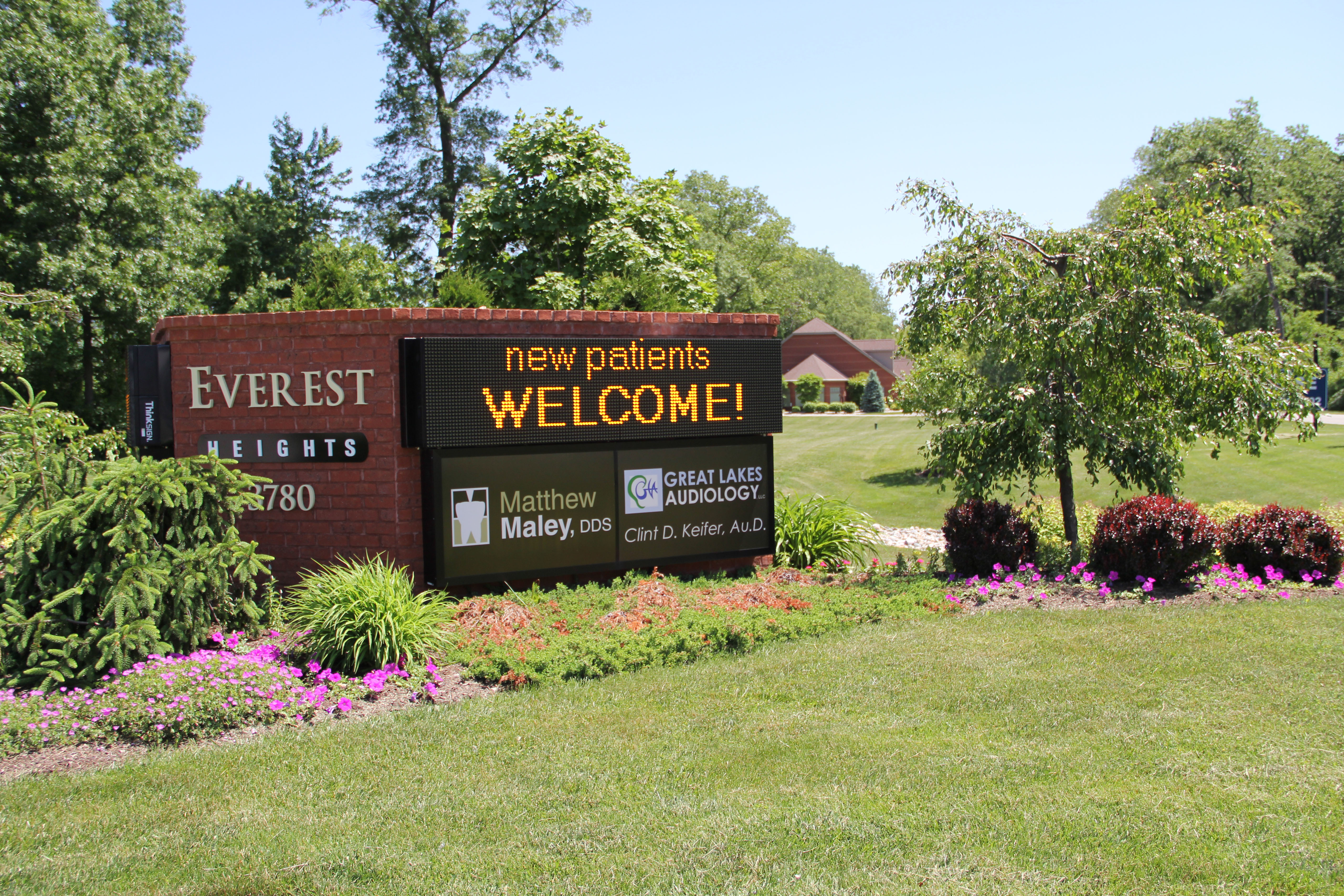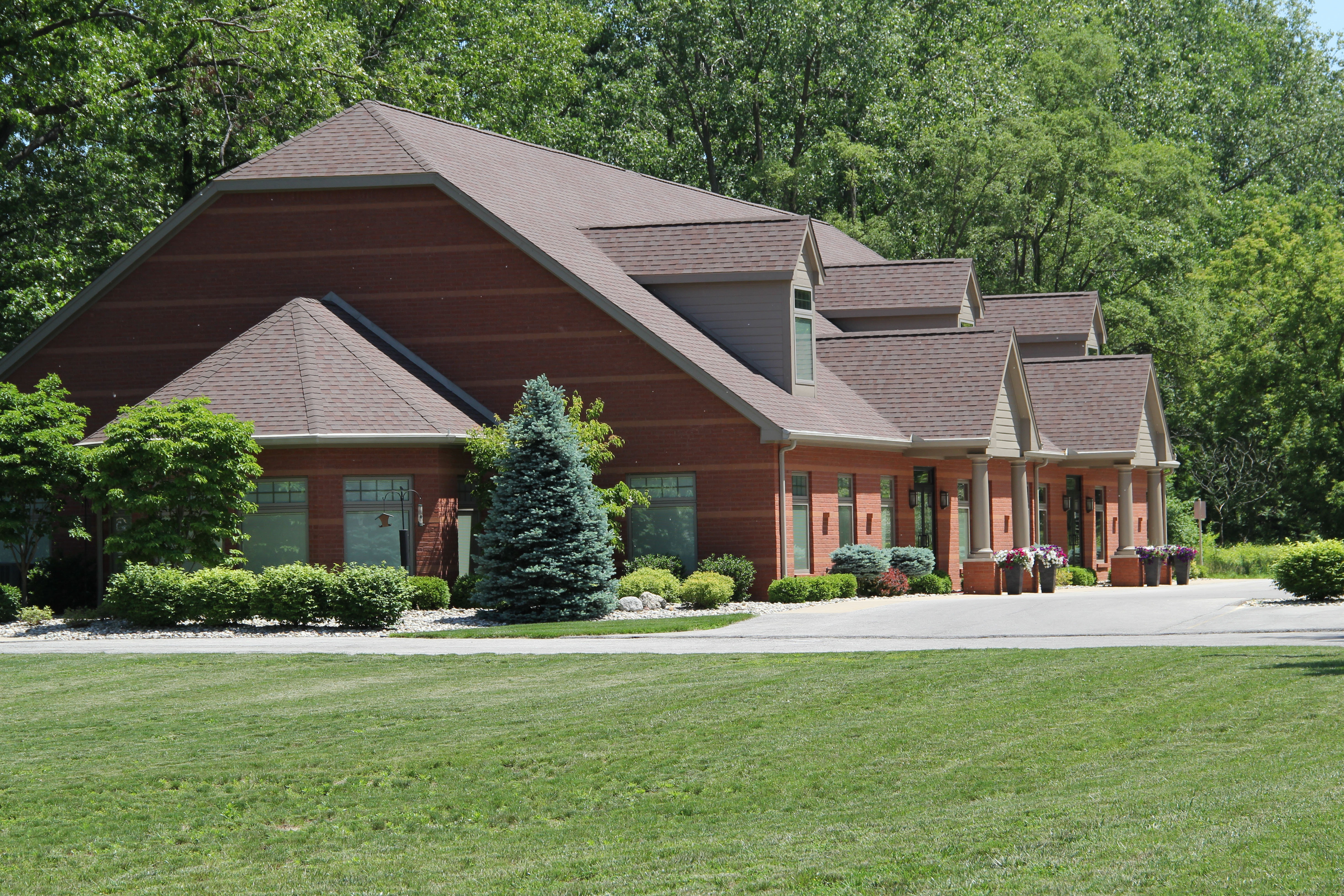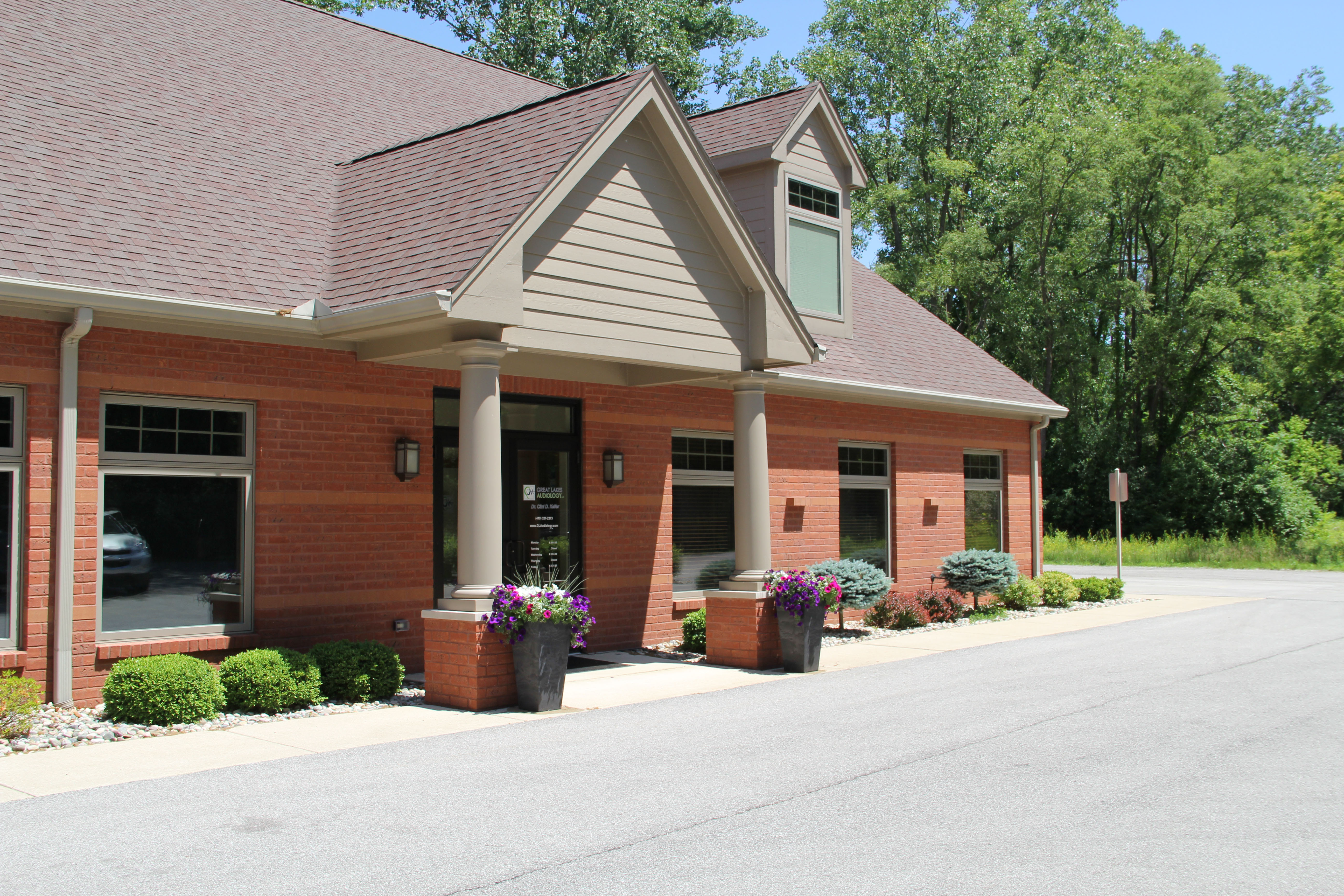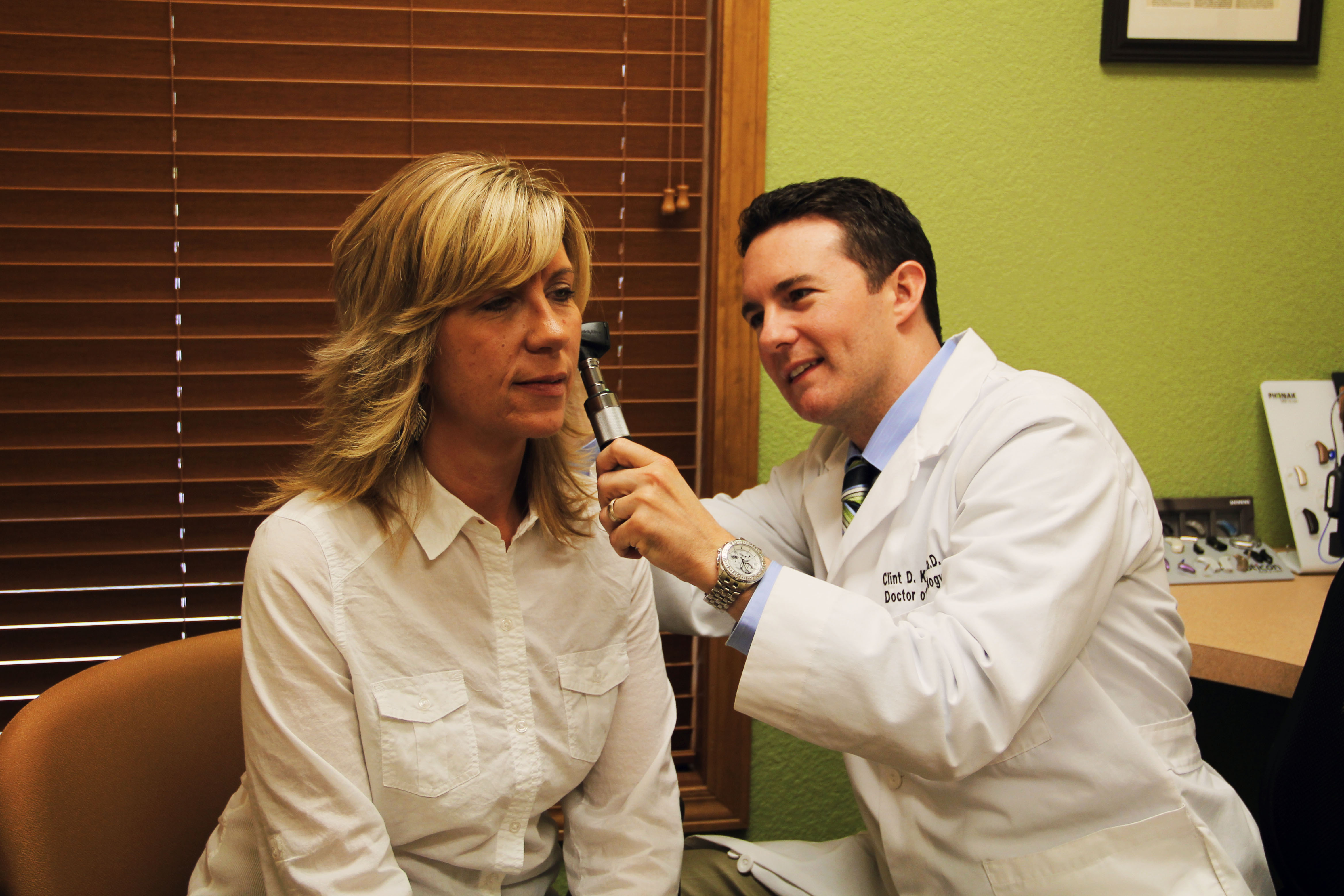From Salesman to Doctor: Knowing your hearing healthcare provider
(July 2013Column from Abec’s Small Business Review)
By Dr. Clint Keifer
Following high school and military service, I was offered an opportunity to become a “hearing instrument specialist” (BC-HIS) for a major hearing aid chain. With no formal education beyond a H.S. diploma, I received on-the-job training to become a hearing aid salesman.
I loved working with people, but was turned off by the sales approach to treating a health problem as complex and important as hearing loss. Although naturally drawn to solving problems, I was extremely limited and frustrated by my lack of education and ability to provide comprehensive hearing care. Once I discovered that Doctors of Audiology were for ears/hearing what Doctors of Optometry were for eyes/vision, I set out to become an audiologist.
That was more than 15 years ago—time flies! As a practicing audiology doctor for several years now, I have witnessed the repercussions of inappropriate hearing aid fittings, missed diagnoses, and discouraged patients who have “sworn off” hearing aids due to bad experiences. It is not easy for these individuals to regain trust in hearing healthcare, but when they do, they usually become loyal advocates for others with similar problems.
Unfortunately, it is all too easy to find a dealer who is eager to make commission off of your hearing aid purchase, selling you whatever you are willing to buy. It can take some effort to look past all the hype and flashy advertising and recognize that obtaining quality hearing healthcare is much more than the sale of a product.
Understanding the differences in hearing care providers and ultimately seeking comprehensive audiologic care can help in avoiding bad first experiences, but also ensure that medical diagnoses are not missed, treatment options are individualized, and maximal outcomes are achieved.
For more detailed information on the differences between audiologists and hearing instrument specialists go to www.toledohearingdoc.com/audiology/audiologist-vs-hearing-aid-dealer/.
Dr. Clint Keifer is the owner of Great Lakes Audiology in Toledo. You can contact him at 419 327-2273; email at ckeifer@glaudiology.com; or visit www.GLAudiology.com.
###
_____________________________________
Toledo Tinnitus Support Group Meeting (Press Release)
– Join the Toledo Tinnitus Support Group on July 17, 2013 for their first meeting-
WHO: The Toledo Tinnitus Support Group
WHAT: Support group meeting
WHEN: Wednesday, July 17, 2013 @ 5:30 PM
WHERE: Great Lakes Audiology, LLC- 3780 King Rd., Ste. 2C – Toledo, OH 43617
CONTACT: Clint D. Keifer, Au.D. & Cherie Tarnowski at (419) 327-2273 or earcare@glaudiology.com
WHY: Tinnitus, commonly referred to as “ringing in the ears,” affects 50 million Americans and of those, up to
16 million seek medical attention for this sometimes debilitating condition. Additionally, tinnitus is the number-one service-connected disability of veterans from all periods of service.
Facing tinnitus can be challenging, but a support group can help. Support groups bring together people facing similar issues, help make connections and share experiences and advice. A support group shouldn’t replace your traditional medical care, but it can be a valuable resource to help you cope.
Audiologist and owner of Great Lakes Audiology, Dr. Clint Keifer–himself a veteran with tinnitus–recognized the need for a Toledo area support group and coordinated with the American Tinnitus Association to help raise awareness and share resources with group members.
About Great Lakes Audiology, LLC
Great Lakes Audiology, LLC, is a hearing healthcare practice located in Toledo, Ohio. Audiologist and owner Dr. Clint D. Keifer is dedicated to community hearing health awareness, hearing loss prevention, and improving listening quality and communication ability for everyone. For additional information call 419 EAR-CARE, email earcare@glaudiology.com, or visit www.GLAudiology.com.
About the American Tinnitus Association
The American Tinnitus Association, headquartered in Portland, Ore., is the nation’s foremost organization committed to curing tinnitus. For 40 years, ATA has helped tinnitus patients understand and manage the ringing in their ears. ATA exists to cure tinnitus through the development of resources that advance tinnitus research. Founded in 1971, ATA has contributed millions of dollars to medical research projects focused on curing tinnitus. The association also provides information on tinnitus to the public and advocates for effective public policies that support its mission of curing tinnitus. www.ATA.org.
###
______________________________________
MAY IS BETTER HEARING MONTH (Press Release)
TOLEDO, OH—Hearing loss currently affects more than 42 million Americans—1 in every 10 people. Although hearing problems are commonly associated with the normal aging process, more than half of all those with hearing-impairment are younger than 65. With the increased use of personal music players (MP3s) and earbuds, the number of Americans experiencing hearing loss and tinnitus (ringing or noises in the ears) at a younger age is growing.
On average, most Americans consider hearing loss a condition that is simply associated with aging, and don’t know how to recognize the condition or who is qualified to diagnose and treat the condition. In an effort to raise public awareness for the growing number of Americans suffering from hearing loss and other ear problems, Great Lakes Audiology is promoting Better Hearing Month this May.
Dr. Clint D. Keifer, audiologist and owner of Great Lakes Audiology, is encouraging members of our community to be more aware of their hearing health.
“Hearing loss and tinnitus can be caused by exposure to loud noises; ear infections, trauma, or ear disease; birth defects and genetics; damage to the inner ear and ear drum; illness or certain medications; and deterioration due to normal aging process,” explains Dr. Keifer. “In fact, the number one cause of hearing loss is not the aging process, but rather noise exposure. “
To make things worse, most hearing loss happens gradually which decreases one’s awareness that a change is occurring. Noise exposure now shows up as hearing loss later.
Audiology doctors are health-care providers who specialize in the prevention, evaluation, diagnosis, and treatment of hearing and balance disorders. Hearing loss can affect people of all ages—from newborns to the elderly and everyone in-between.
Signs of hearing loss include the following:
- straining to hear
- setting the volume on your radio or TV at a level that others say is too loud
- ringing in the ears
- misinterpretation of what others have said
- frequent requests for repetition
- gradual disengagement from social interactions
The American Speech-Language Hearing Association and the American Academy of Audiology recommend people who see themselves in these statements should see an audiologist for a hearing evaluation. In addition, it is a good idea to establish a hearing baseline early in life followed by annual hearing checkups after age 45.
“Even a very slight hearing loss can have an impact on your daily life,” said Dr. Keifer. “Hearing loss is treatable and often preventable, and there is no reason for anyone to have to miss any important sounds of life.”
The first step in treatment of a hearing problem is a hearing evaluation by an audiologist. Although many hearing disorders are permanent, an audiologist can determine the best treatment, which may include prescribing measures to help prevent further damage/decline, counseling, rehabilitative strategies, hearing aids, advanced listening devices, and tinnitus therapies.
For more information go to www.GLAudiology.com or call (419) EAR-CARE.
###
Great Lakes Audiology, LLC, is a hearing healthcare practice located in Toledo, Ohio. Audiologist and owner Dr. Clint D. Keifer is dedicated to community hearing health awareness, hearing loss prevention, and improving listening quality and communication ability for everyone. For additional information call 419 EAR-CARE, email earcare@glaudiology.com, or visit www.GLAudiology.com.
____________________________________
Local Audiologist Setting Better Example for Hearing Healthcare (Press Release)
TOLEDO, March 4, 2013—Dr. Clint D. Keifer, audiologist, views the current state of hearing healthcare as “confusing and disappointing.” He aims to increase awareness and set a better example in his newly opened practice—Great Lakes Audiology, LLC.
“There are many families within our community who are attempting to cope with hearing loss,” says Dr. Keifer, “but do not seek help for a variety of reasons.” Current estimates indicate over 35 million Americans have hearing loss (NIDCD, 2010), although less than 25% who might benefit from treatment actually seek help (Kochkin, 2009). This is despite studies linking untreated hearing loss to psychosocial disorders such as depression, isolation, frustration, and anxiety in addition to reduced career earning power and poorer quality of life. Recent research has even found a link between untreated hearing loss and dementia (Lin et al., 2011).
While poor awareness of hearing health and the “invisible” nature of hearing loss are certainly reasons why many do not seek help, Dr. Keifer believes that the way hearing aids have traditionally been marketed and sold through large chains and dealers over the years as the “total solution” for hearing loss has compounded the problem. He explains that although hearing aids are a common consideration when recommending treatment plans for hearing loss, improperly selected or adjusted devices will provide poor outcomes and, in turn, a poor investment. “When the sale of a product is the dealer’s primary objective, you will end up with whatever you are willing to buy–which often is not what is most appropriate.”
Studies find that hearing instrument users achieve the greatest communication successes only when current audiological evidence-based practices are incorporated. These services include proper evaluation, diagnosis, counseling/education, appropriate device selection, prescriptive amplification fitting and verification, and regular follow-up.
Dr. Keifer is no stranger to the retail model of hearing aid sales, having started out in 1998 as a hearing instrument specialist (H.I.S.) for a large hearing aid chain after serving in the U.S. Army. “I was sort of ‘pulled’ into the job by someone and learned how much I enjoyed helping those with hearing loss, but realized that my lack of education and training would greatly limit my ability to do so. That is when I decided to become an audiologist.”
Audiologists are currently required to earn a clinical doctorate to obtain licensure, placing them on par with other doctoring professions such as optometry, psychology, medicine, and dentistry. Audiologists specialize in the diagnosis and non-surgical treatment of hearing loss, tinnitus (ringing in the ears), and balance disorders. “Although the profession has advanced,” Dr. Keifer explains, “many are not familiar with audiology or are unaware of the differences between providers. People deserve to make well-informed choices on where to obtain their hearing health care.”
Promoting better hearing health awareness is also necessary for preventing noise-induced hearing loss and needs to start at an early age. “Teaching our children and young musicians to protect against the cumulative harmful effects of noise will foster good habits to be maintained throughout life,” says Dr. Keifer. He explains that properly fit earplugs, MP3 earbud adapters, and musician plugs and monitors are comfortable and actually allow for better sound quality at safer listening levels. Custom fitted ear pieces require only a 20 minute office visit for ear impressions and color/design selection. “I really enjoy seeing what kids choose for color and design on their molds,” remarks Dr. Keifer.
Nationally, the need for increased awareness and higher quality of hearing healthcare has never been more important as the “baby boomer” generation is expected to increase demand for these services over the next 10-20 years. Dr. Keifer states that “In order to continue living life to the fullest, hearing and communication must be able to keep up with the daily family and social interactions in which we all want to take part.”
Great Lakes Audiology, LLC, is a hearing healthcare practice located in Toledo, Ohio. Audiologist and owner Dr. Clint D. Keifer is dedicated to community hearing health awareness, hearing loss prevention, and improving listening quality and communication ability for everyone. For additional information call 419 EAR-CARE, email earcare@glaudiology.com, or visit www.GLAudiology.com.
Kochkin, S. (2010). MarkeTrak VIII: Consumer Satisfaction with Hearing Aids is Slowly Increasing. Hearing Journal. 63(1), 19-32.
Lin, F., et al. (2011). Hearing Loss and Incident Dementia. Arch Neurol. 68(2), 214-220.
National Institute on Deafness and Other Communication Disorders. (2010). Quick statistics.
# # #
